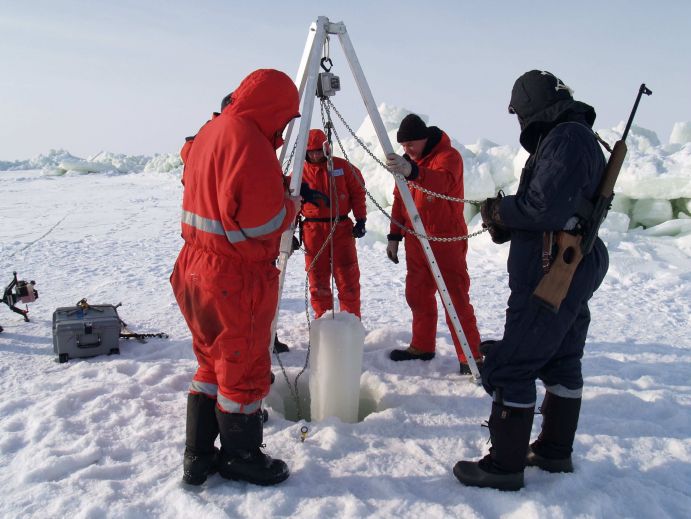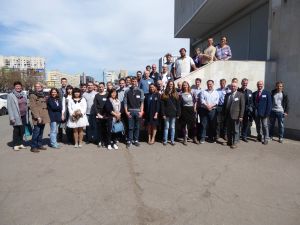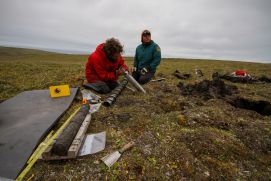Scientific and Technical Cooperation on Marine and Polar Research with Russia
Scientific cooperation between Germany and Russia, in the field of marine and polar research, began with an agreement signed by the responsible ministries in 1995. Since then a German-Russian steering committee has conducted regular meetings to evaluate current projects and identify new thematic focuses. The venue for the meetings alternates between Russia and Germany.

In Germany, the studies will be integrated into the BMBF's new Research for Sustainable Development (FONA3) Framework Program and implemented within the MARE:N research program. Joint research expeditions, publications and an in-depth exchange between the Russian and German scientists are a testament to excellent working relationships at an operational level.
The core themes of the German-Russian collaboration on marine and polar research are as follows:
- The decline of Arctic sea ice and feedback to the atmosphere, oceans and ecosystems,
- Arctic climate change in space and time,
- Methane hydrates and their release in permafrost regions,
- Opportunities and risks associated with increasing economic exploitation of the Arctic.

A joint tender for bilateral research projects was published in June, 2016, and the first research projects began in March, 2017.
German and Russian scientists met in St. Petersburg and presented the scientific agenda for the joint CATS project in May, 2017. Under the umbrella of the "CATS (The Changing Arctic Transpolar System)" project, a consortium of ten German and Russian research institutes is studying the ways in which climate change will impact the sensitive Arctic habitat and the extent to which the changes will also affect the European climate. The principal study area comprises the shelf and continental slope of the Western Laptev Sea as well as the Vilkitsky Strait and Severnaya Zemlya archipelago (Cape Baranov research station) in Russia's exclusive economic zone. Coordinator Dr. Heidemarie Kassens reports on the German-Russian Arctic research during an interview and explains why polar researchers always carry a gun on the ice.
News about the measure
Last updated on





